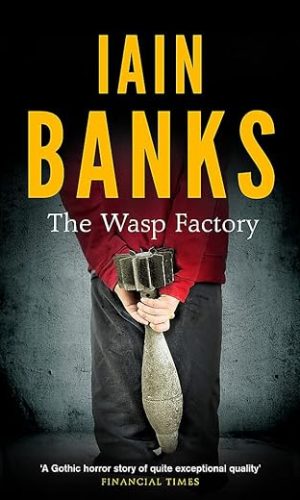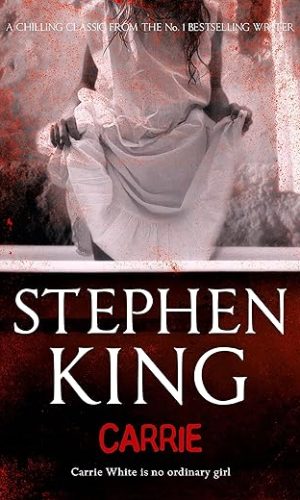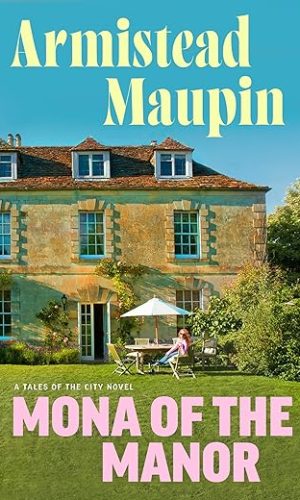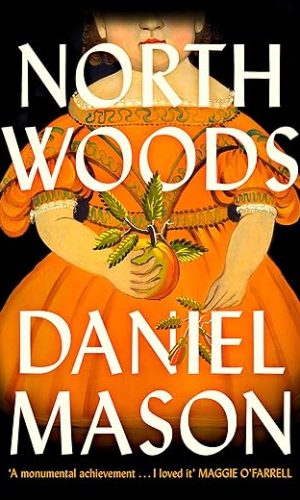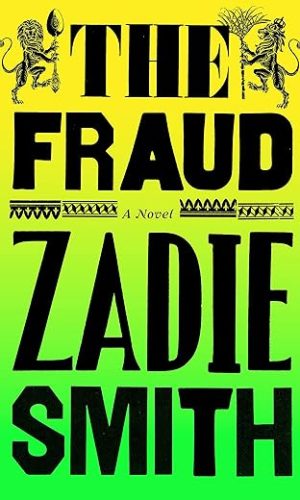Contemporary Fiction
-
The Wasp Factory: Ian Banks
Review At last, a reader who does it justice . . . Peter Kenny is the one reader (I’ve heard five) who brings out Banks’s glorious sardonic wit. Good things are worth waiting for (Sue Arnold, GUARDIAN) A Gothic horror story of quite exceptional quality…macabre, bizarre and…quite impossible to put down (FINANCIAL TIMES) A mighty imagination has arrived on the scene (MAIL on Sunday) Book Description Iain Banks’ momentous first novel, published in 1984. From the Back Cover Enter if you can bear it – the extraordinary world of Frank, just sixteen and unconventional to say the least ‘Two years after I killed Blyth, I murdered my young brother Paul, for quite different reasons and more fundamental reasons than I’d disposed of Blyth, and then a year after that I did my young cousin Esmeralda, more or less on a whim. That’s my score to date. Three. I haven’t killed anybody for years, and don’t intend to ever again. It was just a stage I was going through.’ About the Author Iain Banks came to widespread and controversial public notice with the publication of his first novel, THE WASP FACTORY, in 1984. He gained enormous popular and critical acclaim for both his mainstream and his science fiction novels. Iain Banks died in June 2013. Excerpt. Reprinted by permission. All rights reserved. I had been making the rounds of the Sacrifice Poles _the day we heard my brother had escaped. I already knew something was going to happen; the Factory told me. At the north end of the island, near the tumbled remains of the slip where the handle of the rusty winch still creaks in an easterly wind, I had two Poles on the far face of the last dune. One of the Poles held a rat head with two dragonflies, the other a seagull and two mice. I was just sticking one of the mouse heads back on when the birds went up into the evening air, kaw-calling and screaming, wheeling over the path through the dunes where it went near their nests. I made sure the head was secure, then clambered to the top of the dune to watch with my binoculars. Diggs, the policeman from the town, was coming down the path on his bike, pedalling hard, his head down as the wheels sank part way into the sandy surface. He got off the bike at the bridge and left it propped against the suspension cables, then walked to the middle of the swaying bridge, where the gate is. I could see him press the button on the phone. He stood for a while, looking round about at the quiet dunes and the settling birds. He didn’t see me, because I was too well hidden. Then my father must have answered the buzzer in the house, because Diggs stooped slightly and talked into the grille beside the button, and then pushed the gate open and walked over the bridge, on to the island and down the path towards the house. When he disappeared behind the dunes I sat for a while, scratching my crotch as the wind played with my hair and the birds returned to their nests. I took my catapult from my belt, selected a half-inch steelie, sighted carefully, then sent the big ball-bearing arcing out over the river, the telephone poles and the little suspension bridge to the mainland. The shot hit the ‘Keep Out – Private Property’ sign with a thud I could just hear, and I smiled. It was a good omen. The Factory hadn’t been specific (it rarely is), but I had the feeling that whatever it was warning me about was important, and I also suspected it would be bad, but I had been wise enough to take the hint and check my Poles, and now I knew my aim was still good; things were still with me. I decided not to go straight back to the house. Father didn’t like me to be there when Diggs came and, anyway, I still had a couple of Poles to check before the sun went down. I jumped and slid down the slope of the dune into its shadow, then turned at the bottom to look back up at those small heads and bodies as they watched over the northern approaches to the island. They looked fine, those husks on their gnarled branches. Black ribbons tied to the wooden limbs blew softly in the breeze, waving at me. I decided nothing would be too bad, and that tomorrow I would ask the Factory for more information. If I was lucky, my father might tell me something and, if I was luckier still, it might even be the truth. I left the sack of heads and bodies in the Bunker just as the light was going completely and the stars were starting to come out. The birds had told me Diggs had left a few minutes earlier, so I ran back the quick way to the house, where the lights all burned as usual. My father met me in the kitchen. ‘Diggs was just here. I suppose you know.’ He put the stub of the fat cigar he had been smoking under the cold tap, turned the water on for a second while the brown stump sizzled and died, then threw the sodden remnant in the bin. I put my things down on the big table and sat down, shrugging. My father turned up the ring on the cooker under the soup-pan, looking beneath the lid into the warming mixture and then turning back to look at me. There was a layer of grey-blue smoke in the room at about shoulder level, and a big wave in it, probably produced by me as I came in through the double doors of the back porch. The wave rose slowly between us while my father stared at me. I fidgeted, then looked down, toying with the wrist-rest of the black catapult. It crossed my mind that my father looked worried, but he was good at acting and perhaps that was just what he wanted me to think, so deep down I remained unconvinced. ‘I suppose I’d better tell you,’ he said, then turned away again, taking up a wooden spoon and stirring the soup. I waited. ‘It’s Eric.’ Then I knew what had happened. He didn’t have to tell me the rest. I suppose I could have thought from the little he’d said up until then that my half-brother was dead, or ill, or that something had happened to him, but I knew then it was something Eric had done, and there was only one thing he could have done which would make my father look worried. He had escaped. I didn’t say anything, though.
Read more
£8.70£9.50The Wasp Factory: Ian Banks
£8.70£9.50 -
Carrie
Stephen King’s legendary debut, about a teenage outcast and the revenge she enacts on her classmates, is a Classic. CARRIE is the novel which set him on the road to the Number One bestselling author King is today.
Carrie White is no ordinary girl.
Carrie White has the gift of telekinesis.
To be invited to Prom Night by Tommy Ross is a dream come true for Carrie – the first
step towards social acceptance by her high school colleagues.But events will take a decidedly macabre turn on that horrifying and endless night as she
is forced to exercise her terrible gift on the town that mocks and loathes her . . .Read more
£8.70£9.50Carrie
£8.70£9.50 -
Mona of the Manor (Tales of the City, 10)
The tenth novel in the beloved Tales of the City series, Armistead Maupin’s best-selling San Francisco saga.
____________________When Mona Ramsey married Lord Teddy Roughton to secure his visa―allowing him to remain in San Francisco to fulfil his wildest dreams―she never imagined she would, by age 48, be the sole owner of Easley House, a romantic country manor in the UK. Now, with her adopted son, Wilfred, Mona has opened Easley’s doors to paying guests to keep her inherited English manor afloat.
As they welcome a married American couple to Easley, Mona and Wilfred discover their new guests’ terrible secret. Instead of focussing on the imminent arrival of old friend Michael Tolliver and matriarch Anna Madrigal, Mona will need to use her considerable charm, willpower and wiles to set things right before Easley’s historic Midsummer ceremony.
Hurdling barriers both social and sexual, Maupin leads the eccentric tenants of Barbary Lane through heartbreak and triumph, through nail-biting terrors and gleeful coincidences in 1980s San Francisco and beyond. The result is a glittering and addictive comedy of manners that continues to beguile new generations of readers.
Read more
£18.40£20.00Mona of the Manor (Tales of the City, 10)
£18.40£20.00 -
North Woods
‘Truly outstanding’ Mail on Sunday
‘Mason teases out the joy and meaning in the sometimes small lives of his characters. North Woods has been heaped with praise and hype, and deservedly so. This is a book that treats life as a miracle and demands the proper awe from its readers’ Antonia Senior, The Times
‘This is a time-spanning, genre-blurring work of storytelling magic . . . The only constants are the land and Mason’s genius’ Washington Post
‘Daniel Mason’s latest novel is one of those rare books that truly deserves the description “spellbinding” ‘ Observer
‘A tapestry at once intimate and epic’ TLS
‘Utterly beguiling’ Scotsman
‘Extraordinary characters . . . a tour de force’ Independent, Best Books for Autumn
‘Epic . . . weaves a Cloud Atlas-style narrative of humanity under pressure and nature under threat’ Guardian, 2023’s Biggest Books
FOUR CENTURIES. A SINGLE HOUSE DEEP IN THE WOODS OF NEW ENGLAND.
A young Puritan couple on the run. An English soldier with a fantastic vision. Inseparable twin sisters. A lovelorn painter and a lusty beetle. A desperate mother and her haunted son. A ruthless con man and a stalking panther. Buried secrets. Madness, dreams and hope.
All are connected. The dark, raucous, beautiful past is very much alive.
Exhilarating, daring and playful, NORTH WOODS will change the way you see the world.
‘A monumental achievement’ Maggie O’Farrell
‘Ambitious, alive, and lush with generosity . . . an immersive sprint through time’ Tess Gunty
Read more
£9.99North Woods
£9.99 -
The Fraud: The Instant Sunday Times Bestseller
THE GIFT EVERY ZADIE SMITH FAN WILL BE HOPING IS WAITING FOR THEM BENEATH THE CHRISTMAS TREE!
‘A writer at the peak of her powers’ The Telegraph
Truth and fiction. Jamaica and Britain. Who gets to tell their story? Zadie Smith returns with her first historical novel.
Kilburn, 1873. The ‘Tichborne Trial’ has captivated the widowed Scottish housekeeper Mrs Eliza Touchet and all of England. Readers are at odds over whether the defendant is who he claims to be – or an imposter.
Mrs Touchet is a woman of many interests: literature, justice, abolitionism, class, her novelist cousin and his wives, this life and the next. But she is also sceptical. She suspects England of being a land of façades, in which nothing is quite what it seems.
Andrew Bogle meanwhile finds himself the star witness, his future depending on telling the right story. Growing up enslaved on the Hope Plantation, Jamaica, he knows every lump of sugar comes at a human cost. That the rich deceive the poor. And that people are more easily manipulated than they realise.
Based on real historical events, The Fraud is a dazzling novel about how in a world of hypocrisy and self-deception, deciding what’s true can prove a complicated task.
‘It’s difficult to give any idea of how extraordinary this book is. One of the great historical novels, certainly. But has any historical novel ever combined such brilliantly researched and detailed history with such intensely imagined fiction? Or such a range of living, breathing, surprising characters with such an idiosyncratically structured narrative?’ Michael Frayn
‘As always it is a pleasure to be in Zadie Smith’s mind, which, as time goes on, is becoming contiguous with London itself. Dickens may be dead, but Smith, thankfully, is alive’ New York Times
‘Zadie Smith’s Victorian-set masterpiece holds a mirror up to Britain . . . The Fraud is the genuine article’ Independent
‘Smith’s dazzling historical novel combines deft writing and strenuous construction in a tale of literary London and the horrors of slavery’ Guardian
SHOTLISTED FOR WATERSTONES BOOK OF THE YEAR 2023
Read more
£12.30£19.00The Fraud: The Instant Sunday Times Bestseller
£12.30£19.00


